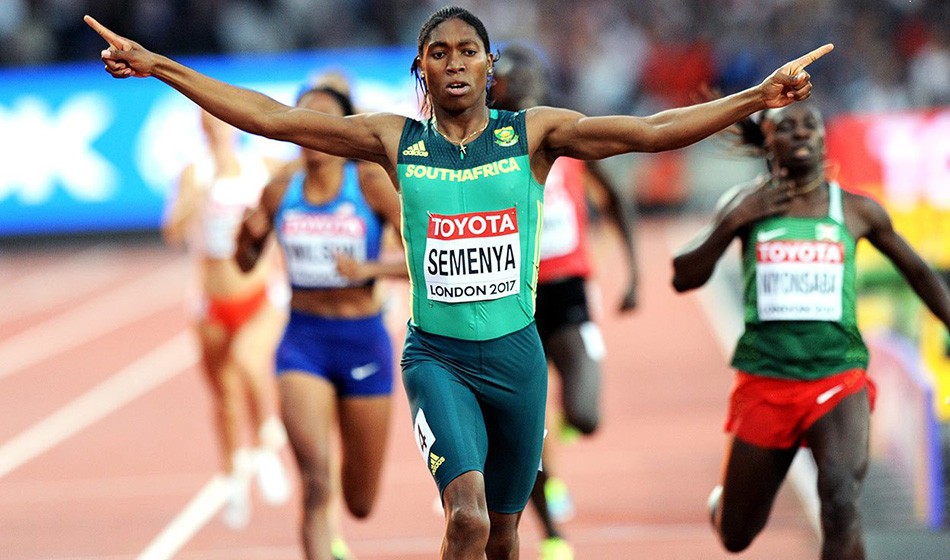News
Victory, at Last: European Court Backs Caster Semenya in Fight for Fairness

A fresh wave of justice has washed over Caster Semenya’s long and painful legal journey — and this time, the victory is hers.
The European Court of Human Rights (ECHR) ruled on Thursday that the South African Olympic champion was not given a fair trial by Swiss courts over the now-notorious testosterone regulations that have kept her out of competition for nearly six years. It’s a landmark judgment that reignites conversations about bodily autonomy, fairness in women’s sport, and the treatment of African athletes on the world stage.
The Battle She Never Asked For
Semenya hasn’t run her beloved 800m since 2018 — not because of injury or age, but because she refused to undergo medically unnecessary hormone treatment demanded by World Athletics regulations.
Under rules targeting athletes with what the sporting body calls “differences in sexual development” (DSD), Semenya was asked to chemically lower her natural testosterone levels in order to compete in women’s events. She refused — on principle, on ethics, and for her health.
Instead, she took her fight to court.
Swiss Justice System in the Hot Seat
The ECHR’s Grand Chamber found that the Swiss Federal Court — which had previously backed the Lausanne-based Court of Arbitration for Sport’s (CAS) 2019 decision against Semenya — had failed to give her a fair trial.
“The seriousness of the personal rights at issue required a rigorous judicial review,” said the court. But Switzerland’s process “fell short,” meaning Semenya was not afforded the protections of a fair trial under European human rights law.
While the court stopped short of declaring the testosterone rule itself discriminatory — citing jurisdictional limitations — it ordered Switzerland to pay Semenya €80,000 in legal costs, a symbolic but significant gesture of accountability.
Public Reaction: “She Stood Her Ground”
Back home in South Africa, Semenya’s supporters have been vocal.
“Caster never asked for special treatment — she asked to be treated fairly. This win matters,” wrote one fan on X (formerly Twitter).
Another added: “She stood her ground. They tried to erase her legacy, but she’s still standing tall.”
Even government officials and human rights advocates weighed in, praising the ruling as a step toward restoring dignity and global respect to one of Mzansi’s most celebrated athletes.
Why This Matters
While Thursday’s decision doesn’t overturn World Athletics’ rules or allow Semenya to race without hormone treatment, it adds serious weight to her claim that she’s been unfairly targeted. It’s also the second time the ECHR has ruled in her favour. In 2023, the court said Semenya was a victim of discrimination — though again, the outcome was more symbolic than practical.
But make no mistake: this case is not just about one runner. It’s about how global sporting institutions treat bodies that don’t fit neatly into binary boxes. It’s about who gets to define fairness — and at what cost.
What’s Next for Caster?
With multiple court rulings now casting doubt on the fairness of the systems that sidelined her, Semenya may still face an uphill battle if she ever hopes to return to the starting line. But the momentum has shifted.
Whether or not she races again, Caster Semenya’s name is already etched into the history books — not just for the medals she’s won, but for the fight she’s waged with dignity and defiance.
And this time, the court agrees: she was never in the wrong to begin with.
Source:The Citizen Online
Follow Joburg ETC on Facebook, Twitter , TikTok and Instagram
For more News in Johannesburg, visit joburgetc.com



























